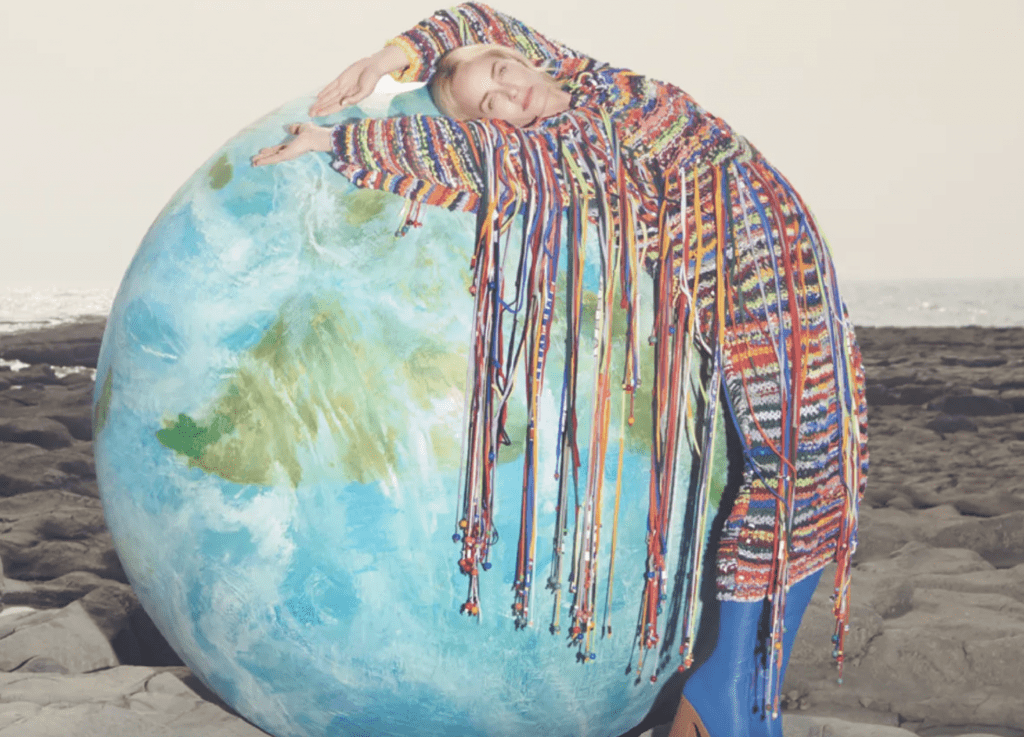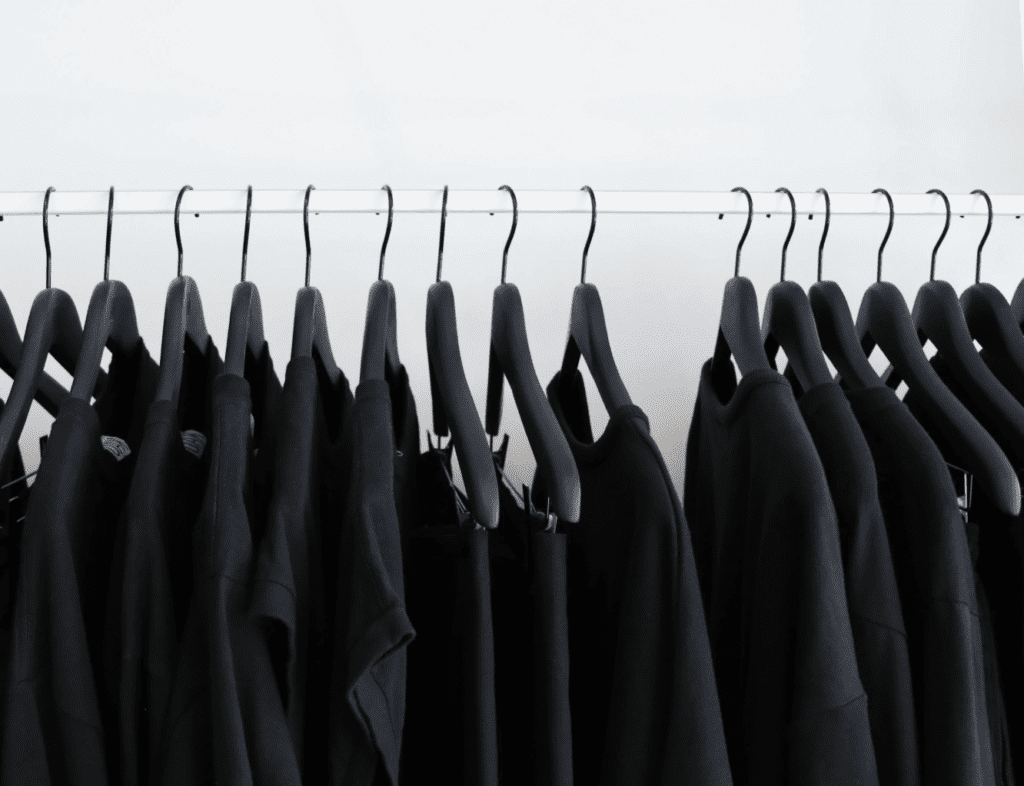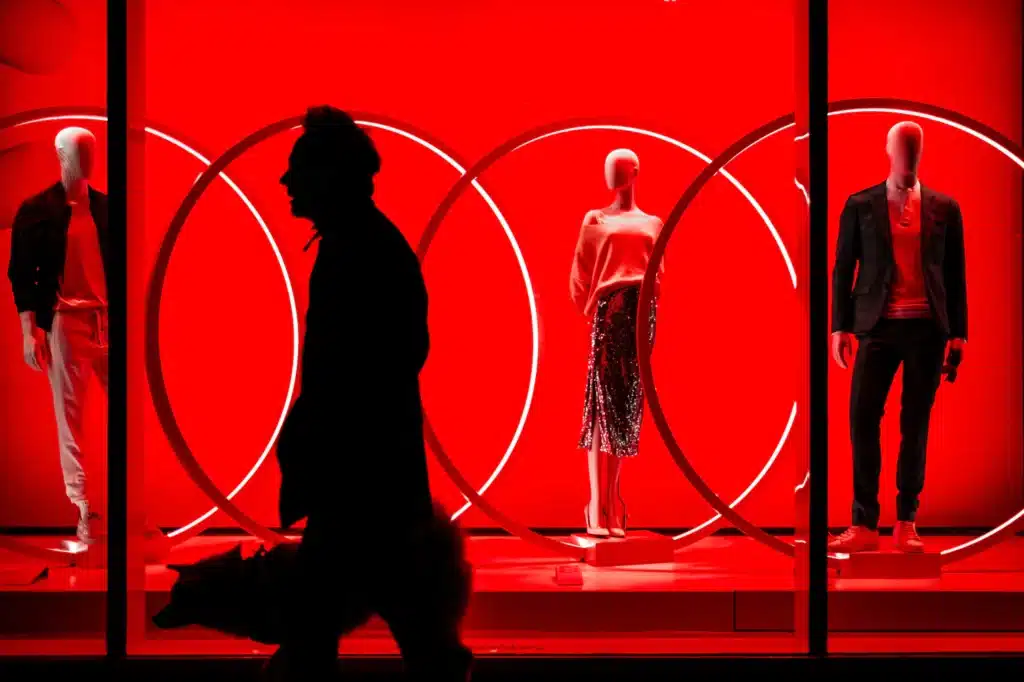Among the many pre-existing trends that have been accelerated by the pandemic is an increase in the already-rising awareness of – and emphasis on – sustainability and Environmental, Social, and Corporate Governance (“ESG”) by consumers and brands, alike, and growing efforts by lawmakers, watchdogs, and class action plaintiffs, among others, to crackdown on the largely unregulated nature of ESG disclosures and sustainability-centric marketing. Consumer interest in sustainability and broader ESG issues has pushed many brands to bolster their bottom lines by making oversized marketing efforts and/or more-ambitious-than-objective “eco-friendly” statements. To date, brands have largely managed to appease stakeholders with proclamations about their “eco” efforts, and skirt legal ramifications for questionable claims due to the traditional lack of regulation in the realm of sustainability and ESG.
The status quo appears to be changing to some extent, though, with new legislation and regulations coming into play, and sustainability-focused marketing lawsuits arising even in instances when the marketing claims are vague and/or aspirational in nature. With the growing importance that consumers and investors, alike, are placing on sustainability and ESG, we take a look at some of the most noteworthy stories in the space that have come about over the past year …
1. Consumers Are Confused About “Sustainability,” Companies Claims Are “Exaggerated, False, or Deceptive”
A report from clean manufacturing firm Genomatica found that while “consumers in the U.S. want to make more environmentally-friendly choices when it comes to shopping for clothing,” a large portion of them are unsure where exactly they can purchase sustainably-made apparel, and even more fundamentally, they are “confused about what makes something sustainable” in the first place, with one survey respondent stating that it is “difficult to make sustainable choices because I am never really sure what sustainable means, particularly with clothing.”
Speaking of sustainability-centric marketing, in connection with an annual screening of the marketing claims made on companies’ websites, the European Commission revealed that it had reason to believe that in 42% of cases of companies making “green” claims, the claims were “exaggerated, false or deceptive.” In its examination of hundreds of websites and “seemingly dubious claims,” the Commission found that “in more than half of the cases,” companies did not provide “sufficient information for consumers to judge the accuracy of the green claims” being made. In 37% of the cases, the potentially problematic claims included “vague and general statements” about a product, such as it being “‘conscious,’ ‘eco-friendly,’ and/or ‘sustainable.’”
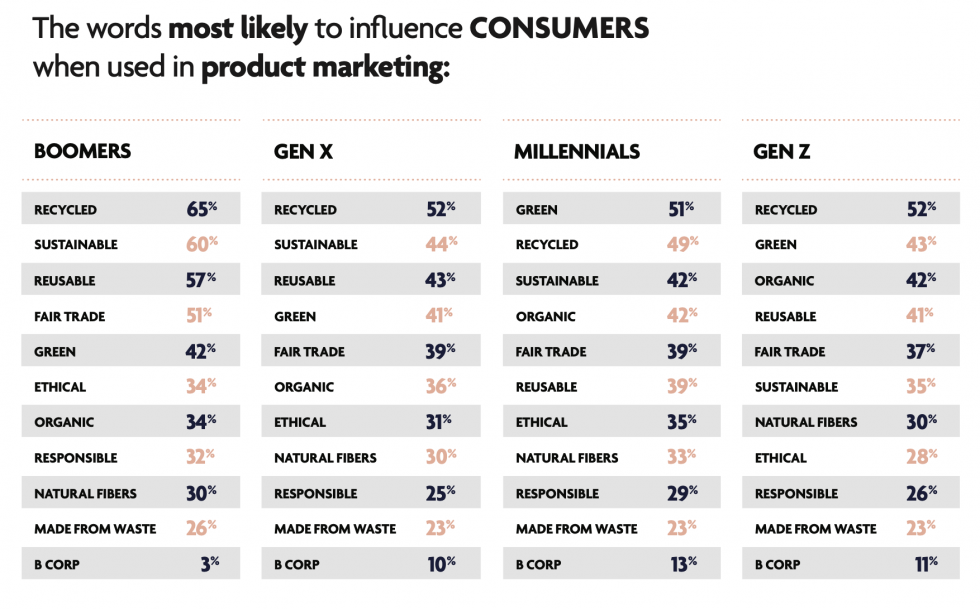
2. Fashion’s Buzzy Tech Initiatives, Alone, Won’t Solve its Sustainability Issues
In furtherance of the industry’s attempts to “go green,” 2021 was filled with examples of brands putting forth novel – and marketable – technological advancements, such as using more recycled fabrics or adopting non-traditional materials like mushrooms. More often than not, these buzzy initiatives come without any emphasis on more foundational efforts that get to the heart of mass-market manufacturing operations. Consistent overproduction, the endless quest for scale, and the downward spiral of wages are key issues that stand out in fashion’s quest to clean up its act, but more than that, transparency continues to be a problem.
3. Green Bonds, Sustainability-Linked Bonds Continue to Gain Steam in Fashion
Known for aligning the cost of borrowing with a borrower’s performance measured against prescribed sustainability performance targets, green bonds are proving compelling for fashion industry entities. Prada, for instance, became the first big-name luxury brand to link its eco efforts to five-year 50 million-euro ($55 million) loan from Crédit Agricole Group back in November 2019. Since then, Burberry announced in September 2020 that it would offer up a £300 million ($385 million) sterling sustainability bond with sustainability strings attached. Also in September 2020, Chanel revealed that it was offering a 600 million euro ($699 million) bond, which links the corporate debt to specific carbon reduction targets set out by the brand.
4. Lawsuits, Watchdogs Are Coming for Fashion Brands Over Their ESG Messaging
In light of ever-growing attempts by companies to bolster their bottom lines by way of ESG messaging, including a slew of more-ambitious-than-objective statements, companies are starting to become the targets of lawsuits claiming that they failed to live up to their eco-centric statements, including aspirational ones. Goldman Sachs, for one, was hit with a shareholder suit on the basis that it maintained significant undisclosed conflicts of interest, and thus, misled shareholders – and artificially propped up and maintained its share price – when it simultaneously made public statements, including, “We have extensive procedures and controls that are designed to identify and address conflicts of interest;” “Our clients’ interests always come first;” and “Integrity and honesty are at the heart of our business.”
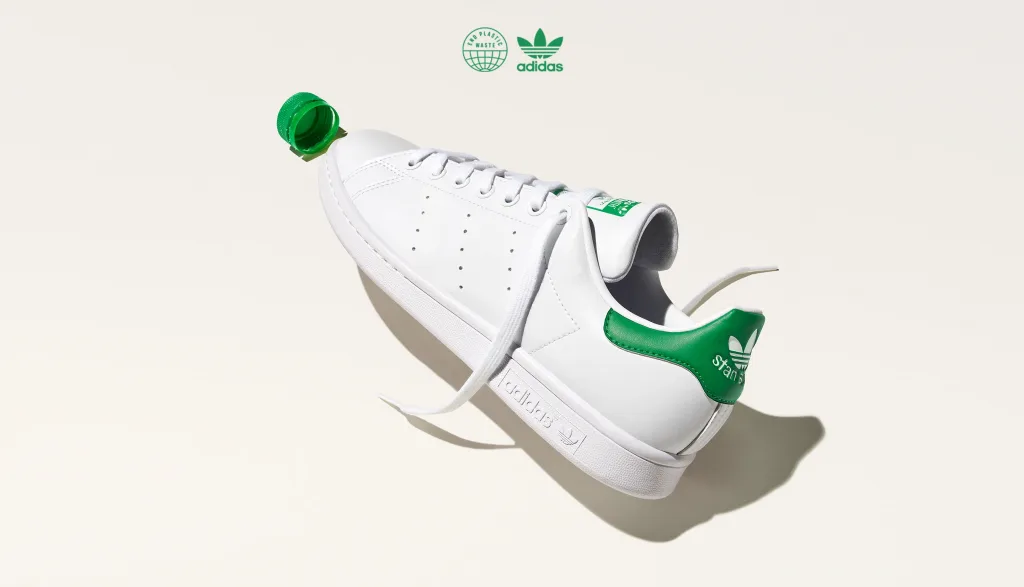
At the same time, consumers are taking issue with the veracity of companies’ claims, with Allbirds and Canada Goose both landing on the receiving end of lawsuits this year that aim to hold them accountable for making misleading sustainability centric advertising claims. And regulators and watchdogs are paying attention, too, as indicated by an investigation into an adidas ad in France, and the recent probe by the NAD into Everlane’s marketing.
5. Regulators are Considering Requiring Uniform ESG Disclosures
The U.S. Securities and Exchange Commission is looking to potentially mandate standards by which corporate securities issuers must disclose material environment, social, and governance (“ESG”)-related risks associated with their businesses. And right around the time that the SEC called on investors, registrants, and other market participants to provide public comment on its current climate change disclosure policies and practices, and insight on how the agency can “best regulate, monitor, review, and guide climate change disclosures” going forward, European Parliament formally set out recommendations to the European Commission that focus on ESG-centric corporate due diligence and accountability.
6. Companies’ S-1 Filings Are Getting Longer, Mentions of ESG Are Increasing
Allbirds has emphasized its efforts on the sustainability front not only in its consumer-facing ad campaigns but in various regulatory filings leading up to its initial public offering in November, as indicated by its S-1. (In its initial S-1, Allbirds mentioned “ESG” 91 times and “sustainability” 112 times.) This comes in furtherance of a larger trend of companies playing up their consciousness credentials, including in IPO forms.
7. The Continued Rise of B Corps
The number of companies seeking B Corporation status continued to rise in 2021. The first generation of B Corps – or “for-profit companies certified as meeting rigorous standards of social and environmental performance, accountability and transparency” – was certified in 2007, and the number of firms earning certification has grown significantly since, with more than 4,000 companies counting themselves as B Corps as of this summer.
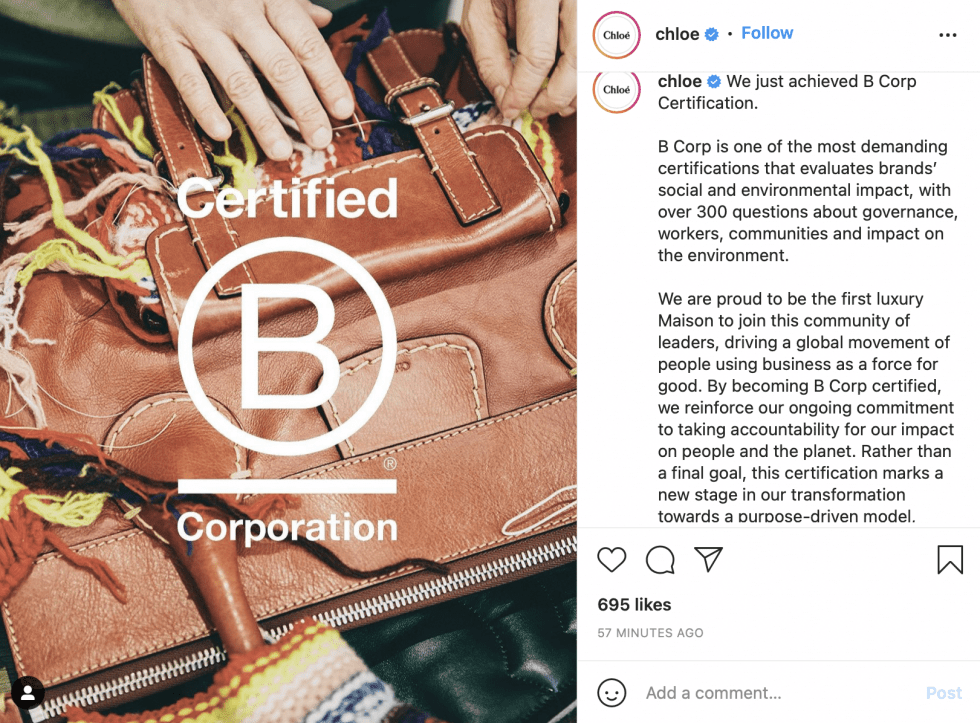
Almost 200 of those companies come from the apparel, accessories, jewelry, and footwear space. Richemont-owned brand Chloé, for instance, become the first European luxury brand to receive the certification, but it is not the only new entrant into the space. Reseller Vestiaire Collection announced in September that it had become a certified B Corp, and Khloe Kardashian co-founded Good American followed suit, joining the likes of Patagonia and Bombas, footwear brands TOMS, Veja and Allbirds, Gap Inc.-owned Athleta and $1 billion Carlyle Group-based BeautyCounter, among others.
8. A New Taskforce Aims to Define Sustainability in Climate Agenda
A fashion-centric arm of His Royal Highness Prince Charles of Wales’ Sustainable Markets Initiative – an endeavor aimed at forging partnerships between government, business and private sector finance” – is bringing together executives from across various major fashion brands to combat climate change, including by coming to a definitive understanding of what “sustainability” entails in a fashion context, and ideally, pushing that definition on to the industry at large.
More than that, the Federico Marchetti-led group, which includes executives from companies like Burberry, Chloé, Stella McCartney, Giorgio Armani, Brunello Cucinelli, Vestiaire, Zalando, Noon.com, and Moda Operandi, revealed ahead of the COP26 that its members are committed to immediately starting the roll out of a new tech-focused system across their companies that will enable consumers to access the sustainability credentials of their garments and accessories.
9. Getting Rid of the Goods: How Brands Off-Load Excess Merch
As the Coach debacle this year and the backlash that Burberry before that seem to indicate, the potential PR fallout that comes with the destruction of unsold wares might outweigh the benefits. Like Burberry, which came under fire in 2018 after reporting that it destroyed nearly $75 million worth of goods over a two-year period, Coach has since vowed to immediately “cease destroying in-store returns of damaged and unsalable goods.” Aside from brands (somewhat) voluntarily walking back from product destruction practices, in certain jurisdictions, destruction may run afoul of the law, thereby taking it off the table as an option, save for any loopholes that luxury goods brands’ lawyers can find; France, for example, introduced a new law that prohibits the destruction of unsold wares.
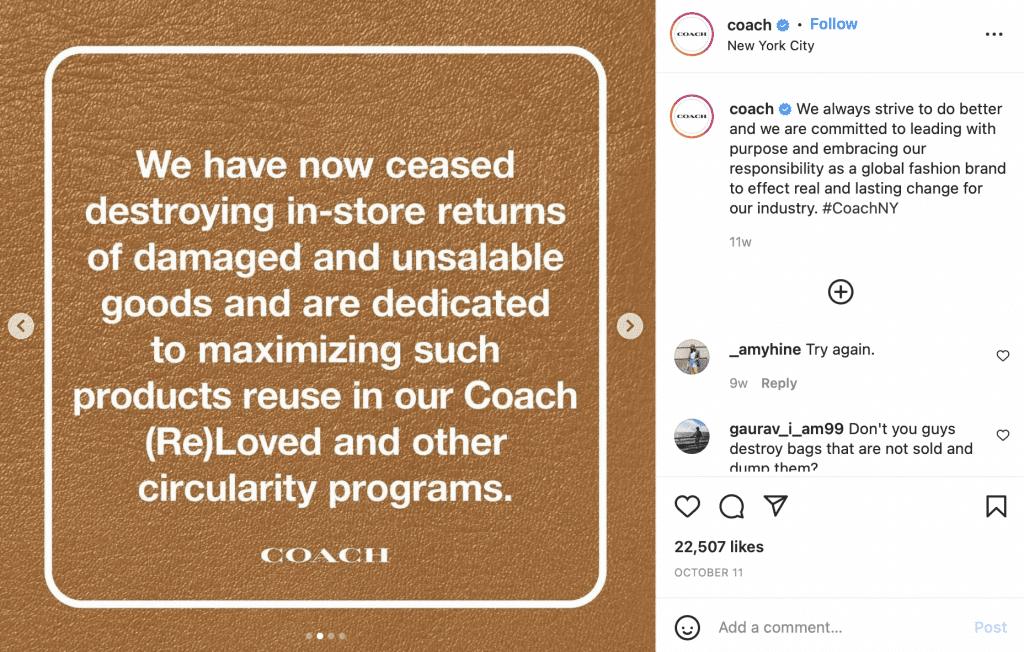
10. California Signs the Nation’s Strictest Recycling Labels, Marketing Law
California is focusing its attention on the rise in sustainable marketing, including recycling-centric claims by way of a new law that mandates when recycling labels – including the “chasing arrows” motif – can be used. According to the bill, which was signed into law in October by California Governor Gavin Newsom, unless a product or packaging is considered recyclable “pursuant to statewide recyclability criteria and is of a material type and form that routinely becomes feedstock used in the production of new products or packaging,” the use of “a chasing arrows symbol, among other symbols, statements [indicating the product is recyclable directly on the product], or directions,” will be deemed deceptive or misleading.
11. New California Law Could Overhaul Abuse-Ridden Garment Manufacturing Sector
With the passage of a new piece of legislation, Senate Bill 62, or the Garment Worker Protection Act, which California Governor Gavin Newsom signed into law on September 28, a loophole that has enabled brands to boost their margins and limit their expose to manufacturing liability has been pared way back. Stating that “the garment industry in California is rife with violations of minimum wage law, overtime laws, and health and safety standards,” while simultaneously having “the highest concentration of garment industry workers in the country,” SB 62 endeavors to ensure that laborers in the apparel manufacturing space in California are paid a minimum wage by the hour instead of having pay dictated by the number of pieces created.




